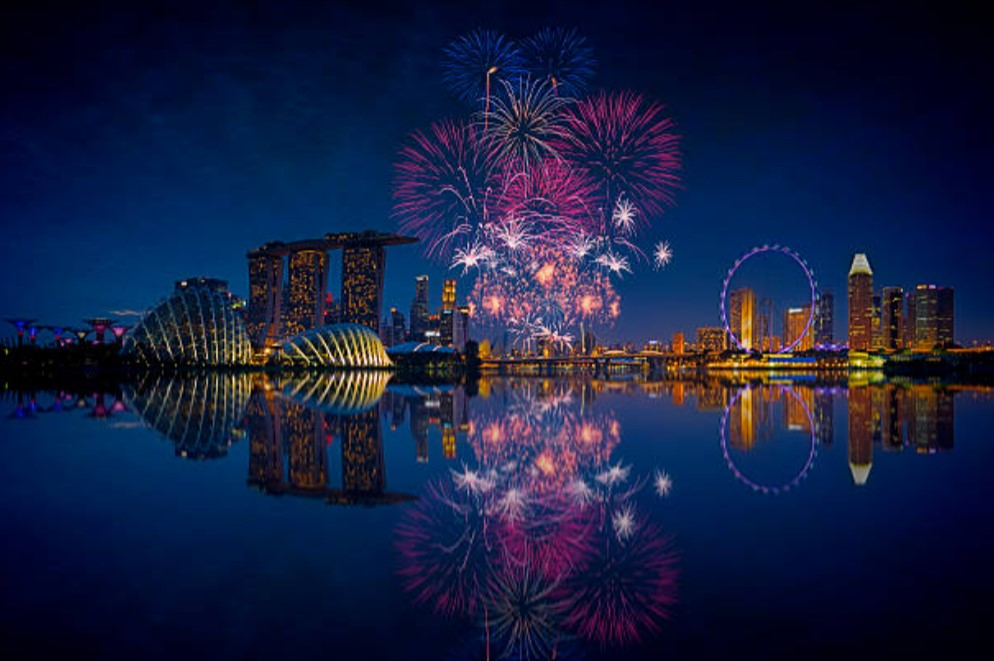Singapore is a vibrant and multicultural city-state that boasts a rich tapestry of traditions and celebrations. Among the many festivals that are celebrated here, several are of Indian origin, reflecting the diverse Indian diaspora that has made Singapore its home for generations. These festivals showcase Singapore's cultural diversity and its dedication to unity and harmony. To name a few, here are some of the Indian festivals that are enthusiastically celebrated in Singapore.
Diwali
Diwali, the festival of lights, holds a special place in the hearts of Singapore's Indian community. The streets of Little India come alive with colourful decorations and intricate rangoli designs. Families light oil lamps and candles, symbolising the victory of light over darkness and good over evil. To make Diwali even more special, people often send gifts to Singapore from India for their loved ones, transcending geographical boundaries and sharing the joy of the occasion.
Rakhi
Rakhi, the celebration of the bond between brothers and sisters, is another cherished Indian festival in Singapore. Sisters tie a sacred thread, or rakhi, around their brothers' wrists, symbolising their love and protection. In return, brothers shower their sisters with gifts and promise to protect them. It's a heartwarming occasion that strengthens family ties, and fosters love and trust between siblings.
Navaratri
Navaratri, a nine-night festival dedicated to the goddess Durga, is celebrated with dance performances, music, and fasting. For an outstanding celebration of this festival in Singapore, the Indian community comes together for lively Garba and Dandiya Raas dances, showcasing the cultural richness of this festival.
Eid/Hari Raya
Eid, also known as Hari Raya in Singapore, marks the end of Ramadan, a month of fasting and prayer for Muslims. Families come together for prayers at the mosque, followed by a sumptuous feast of traditional dishes. Elders give money to the younger ones, signifying blessings and prosperity. The spirit of giving also extends to gifts shared among friends and family, making Eid a joyous occasion for all.
Karva Chauth
Karva Chauth is a fasting ritual observed by married women for the well-being and longevity of their husbands. In Singapore, women dress in traditional attire, fast from sunrise to moonrise, and break their fast after sighting the moon. Thus, this festival becomes a powerful celebration of love, devotion, and the unbreakable bond between husband and wife.
Pongal
Pongal, the Tamil harvest festival, is also celebrated with great enthusiasm in Singapore. Families come together to cook the traditional dish of Pongal, made from newly harvested rice, and offer it to the Sun God as a gesture of gratitude. Homes are adorned with kolam (decorative patterns), and a special dish called Pongal is prepared. Friends and family exchange gifts and greetings to mark the beginning of a fresh year filled with hope and prosperity. So, celebrations like Pongal let everyone enjoy traditional customs, share delicious food, and exchange warm greetings, fostering a sense of renewal and joy.
Christmas
Christmas transcends religious boundaries in Singapore, and the Indian community enthusiastically joins in the celebrations. The streets are adorned with dazzling lights, and Christmas carols fill the air. Families exchange gifts and indulge in festive feasts that are Indian, Western and other delicacies as well. Moreover, the exchange of gifts adds a modern touch to this universal celebration, allowing people to share the joy of giving with loved ones.
Vesak Day/Buddha Purnima – Honouring the Enlightened One
Vesak Day, also known as Buddha Purnima, is a significant festival for Singapore's Buddhist community. It commemorates the birth, enlightenment, and death of Lord Buddha. Devotees visit temples, make offerings, and participate in processions. Additionally, it is also a time for reflection and acts of kindness, with many individuals and organisations engaging in charitable activities.
The celebration of Indian festivals in Singapore showcases the country's multiculturalism. These festivals not only allow the Indian community to connect with their roots but also provide an opportunity for people from different backgrounds to join in the festivities and learn about each other's cultures.
Moreover, the exchange of gifts bridges gaps and brings people closer, proving that traditions can thrive even in the modern age. So, as a whole, Singapore truly exemplifies how the beauty of Indian festivals can flourish in a diverse and harmonious society.



